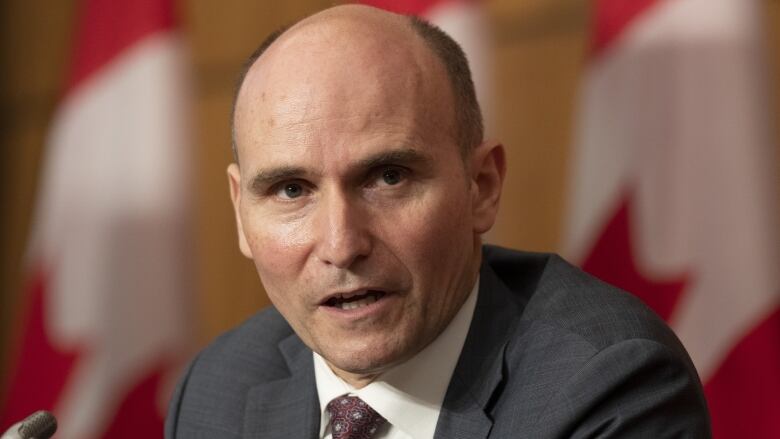G7 health ministers agree to closely monitor omicron variant after virtual meeting
Meanwhile, new global convention on pandemic readiness debated at special session of World Health Assembly

Federal Health Minister Jean-Yves Duclos and his counterparts from other G7 countries agreed Monday to closely monitor and share information about the highly mutated omicron variant of COVID-19.
The new variant was first detected in South Africa, coinciding with an increase in COVID-19 cases in the region. Its appearance prompted border closures as well as screening measures in Canada and around the world.
"The overall risk related to omicron is considered very high for a number of reasons," the World Health Organization (WHO) warned.
"There is concerning preliminary evidence on omicron suggesting, in contrast to previous [variants of concern], both potential immune escape and higher transmissibility that could lead to further surges with severe consequences."
Four cases of the omicron variant have been discovered in Ottawa, andone in Quebec. Officials warn more cases are likely to be found within Canada in coming days.
The G7 health ministers met virtually to discuss the new threat, underscoring the importance of ensuring all countries have access to COVID-19 vaccines and the needed supports to get them into arms.
They also expressed strong backing for an international pathogen surveillance network within the WHO, said a joint statement issued after the meeting.
The ministers agreed to reconvene next month.
Focus on pandemic readiness
The developments came as countries debated a new global convention on pandemic preparedness and response at a special meeting of the World Health Assembly on Monday.
It is only the second time the group has held an emergency summit of this kind.

If member countries agree, the assembly would begin developing what would essentially serve as an international treaty on pandemic readiness.
"Global health security is too important to be left to chance, or goodwill, or shifting geopolitical currents, or the vested interests of companies and shareholders," WHO director Dr. Tedros Adhanom Ghebreyesus said at the outset of the summit.
"The best way we can address them is with a legally binding agreement between nations: an accord forged from the recognition that we have no future but a common future."
He said the emergence of the omicron variant underlines the perilous and precarious nature of the global situation.
"Indeed, omicron demonstrates just why the world needs a new accord on pandemics. Our current system disincentives countries from alerting others to threats that will inevitably land on their shores," he said.
'Stronger when we work together'
The idea is to prevent another global crisis like the one posed by COVID-19 and its new, potentially more transmissible variants.
"Our position has always been that we are stronger when we work together," Duclos said Friday in support of a new convention.
A binding international agreement would help countries to collaborate and would allow Canada to more easily share its expertise on the world stage, Duclos said.
"That level of policy and scientific leadership is a sign that we can do even better in the future as we collaborate with WHO and other organization in order to prevent the incidents of future pandemics and protect Canadians against such things."
The WHO working group on the file says governments should look to develop the convention in tandem with efforts to strengthen existing international health regulations.
The working group's priorities include a focus on global equity, rapid risk detection and assessment, a global approach to misinformation and the sharing of pathogens, genetic information and biological samples.
With files from CBC News














_(720p).jpg)


 OFFICIAL HD MUSIC VIDEO.jpg)
.jpg)



























































































